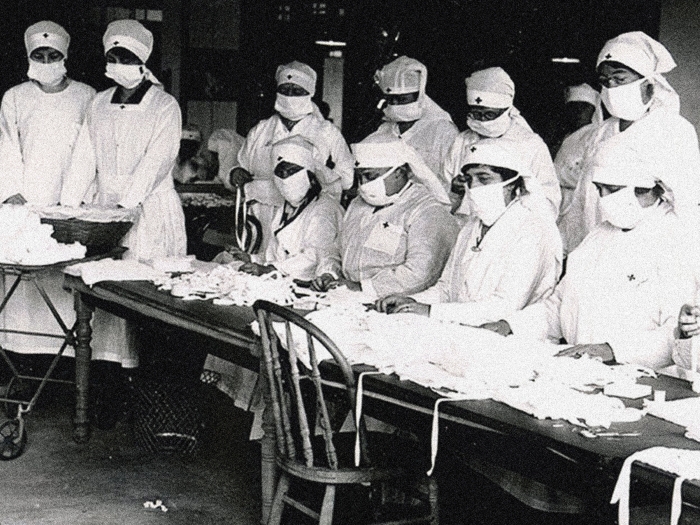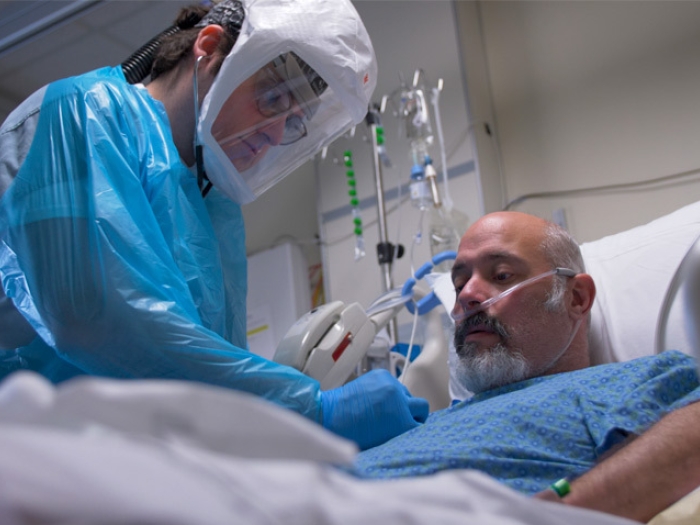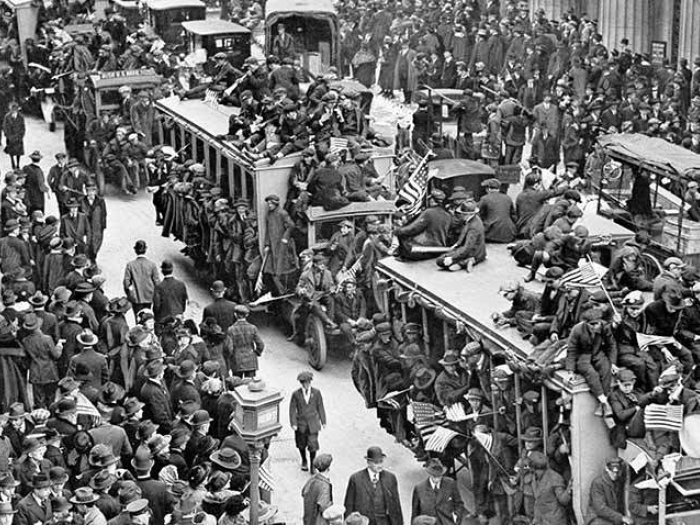Funding for hospitals, health programs, first responders and much more depends on how many people in your area complete the simple survey.
2:35 PM
Author |

Right now, hospitals across America are caring for patients with the disease called COVID-19. Local public health experts are tracking and working to slow the coronavirus that causes it.
And local organizations are making sure that children, older adults, people with disabilities and serious diseases, veterans, lower-income individuals and others will still get food, shelter and other essential services during these unusual times.
What do all of these have in common, besides the virus itself?
The national Census.
Why? Because that's what the government uses to figure out how much money to send to health and social service organizations in your area, and much more. All those Census forms people filled out 10 years ago, and some other surveys in between, helped shape the services in your area today.
SEE ALSO: Flattening the Curve for COVID-19: What Does It Mean and How Can You Help?
And now it's time to fill out those forms again, for Census 2020. It's easier than ever, takes just a few minutes, and will make a difference to your community and your health.
How to do it
Even as the coronavirus dominates the news, the Census bureau's letters are arriving in mailboxes across the nation.
If you didn't get yours yet, you don't have to wait for it -- you can fill out your Census form online, based on your address. Or you can fill it out and mail it in, or even complete it by phone.
The questions are simple: Who lives at the address,how old they are, their gender, their relationship to one another, and their racial and ethnic background, plus whether the property is owned or rented. It also asks for a phone number that can only be used for official questions from Census staff, and not for any other purpose.
Contrary to rumor, the Census form contains no questions about citizen status, health status or income. All the information is kept private, by law.
MORE FROM MICHIGAN: Sign up for our weekly newsletter
Officially, Census Day is April 1 – as it has been since 1930. So your form should reflect who lives at your address on that day.
An exception: College students who have returned home early because of COVID-19 should fill out their form as if they are living at their college address; their institution should send them information if they live in a dormitory.
What difference it makes
Every 10 years since the country began, the government has worked to count every person living in the United States – and record some key basic facts about them.
Those head counts, and facts, shape the way $675 billion in federal money gets spent every year. That money flows to local cities, villages and towns, to health care organizations such as hospitals, safety-net clinics and ambulance companies, and to organizations from food banks to senior centers to veterans' programs.
Census data affect the way the government makes decisions about Medicare, Medicaid, the Children's Health Insurance Program, the network of "safety-net" clinics for the uninsured, and nutrition programs for low-income women and children. Census figures also help determine what areas of the country are classified as rural, so they get extra support for their hospitals and infrastructure.
Of course, the Census data also guides the way we elect people to represent us in our state legislatures and the U.S. Congress, too. The lines for voting districts will change based on the results of this year's Census.
SEE ALSO: Feeling Helpless About the Coronavirus? 10 Things You Can Do
Businesses also look at Census data to decide where to open. States use it to decide where to spend money on developing the local economy or building roads. School districts use it to decide where to open or close school buildings.
Some people can help more
The regular Census form is short. Some randomly selected households will get an invitation to complete a longer form, called the American Community Survey. It asks about even more things, including the what kinds of education, jobs and transportation people in the household have. ACS surveys might arrive at another time of year, rather than around Census Day.
If you receive an ACS form, this is your chance to help shape the health of your community even more. Your response is required by law, just like for the regular Census. Learn more about the ACS here.
Like Podcasts? Add the Michigan Medicine News Break to your Alexa-enabled device or subscribe for daily updates on iTunes, Google Play and Stitcher.

Explore a variety of health care news & stories by visiting the Health Lab home page for more articles.

Department of Communication at Michigan Medicine
Want top health & research news weekly? Sign up for Health Lab’s newsletters today!





